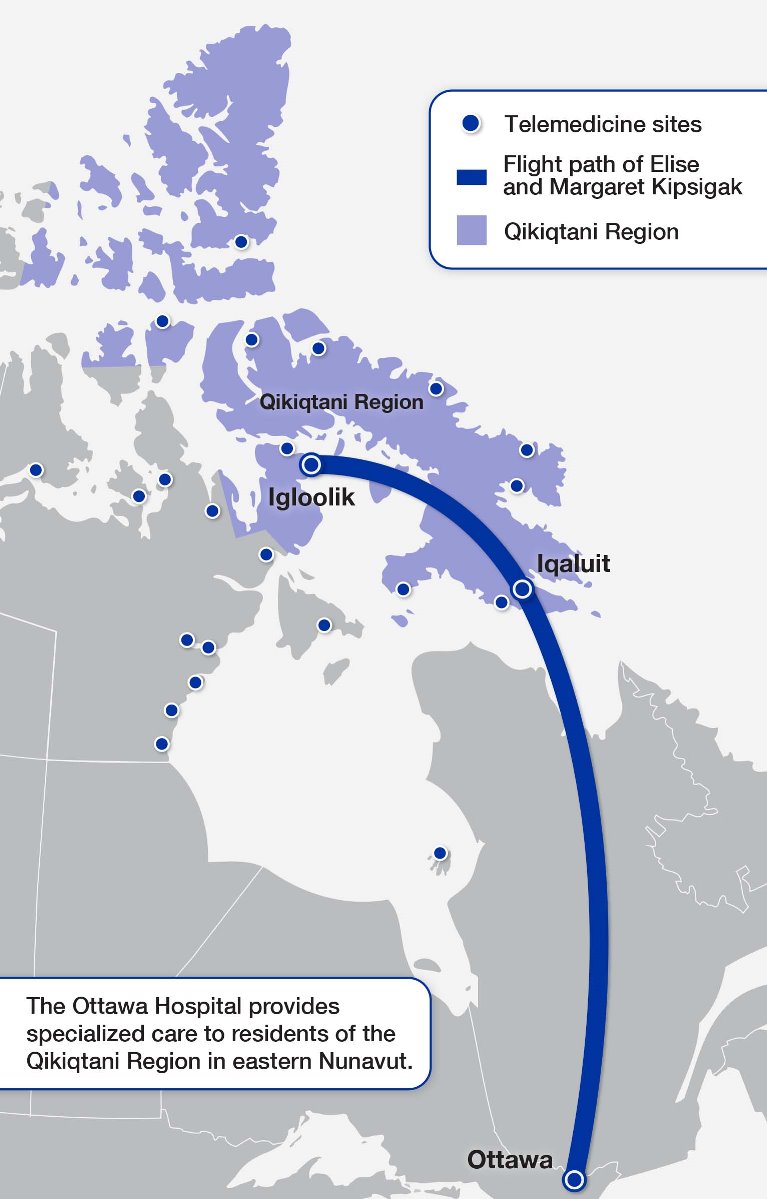
Elise Kipsigak, left, and her mother, Margaret, travelled from a small Nunavut community for care at The Ottawa Hospital.
Elise Kipsigak pointed to two paintings in the Larga Baffin residence in west-end Ottawa. They show traditional northern scenes: a sunset over the tundra and running sled dogs.
“These are my aunt’s photos,” she said. “She paints them from photos. She’s from back home.”
Ms. Kipsigak is in Ottawa escorting her mother, Margaret, for lung cancer treatment at The Ottawa Hospital Cancer Centre since she doesn’t speak English and, at age 78, has difficulty walking.
“Back home” comes up often in conversation, referring to Igloolik, their small Nunavut community on an island near Baffin Island.
The hospital provides specialized care to the Qikiqtani region in eastern Nunavut. To get here, the two women flew at least five hours on two flights, changing provinces, climates, cultures and health systems – the equivalent of traveling from Ottawa to Central America for medical care.

“It can be overwhelming for patients,” said Lorne MacLeod, Larga Baffin’s social worker. “The role of community in the north is very powerful and it’s difficult to be away, missing their families while dealing with so many new things.”
The Nunavut government pays for its citizens to stay at Larga Baffin, where key staff members speak Inuktitut, serve traditional foods and help with things like ordering prescriptions. Patients can bring an escort to help them navigate the language, culture and health system; lodging, meals and transport to and from appointments are covered.
Patients have access to a professional interpreter for medical appointments, but having family there is essential, said Ms. Kipsigak. “If I’m here, I can help tell them what’s wrong, and help her know what is happening.”
But in the end, nothing is quite like Igloolik. “She misses home,” Ms. Kipsigak translated for her mother. “She misses our home town and she misses her family.”

Support patient care and research at
The Ottawa Hospital


 To reset, hold the Ctrl key, then press 0.
To reset, hold the Ctrl key, then press 0.